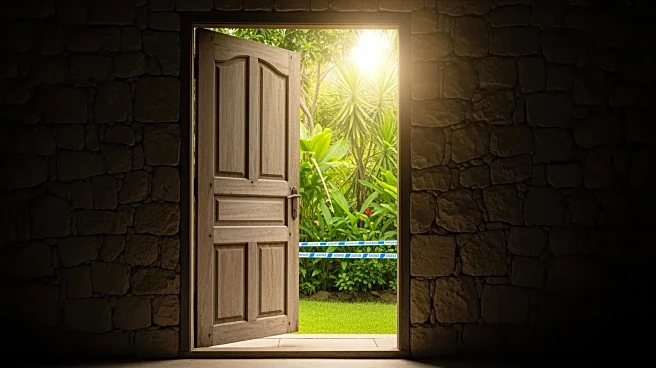What's Happening?
Kilmar Abrego Garcia, a Salvadoran migrant and U.S. resident, faces deportation challenges after being sent to El Salvador's CECOT mega-prison in March by the Trump administration, which alleged his involvement
with the MS-13 gang—a claim he denies. Despite a 2019 court order preventing his deportation due to fears of persecution, Abrego Garcia was deported. Costa Rica's Minister of Security, Mario Zamora, has stated that Costa Rica is willing to accept Abrego Garcia for humanitarian reasons, offering him refugee status or residency. This contradicts statements from U.S. officials who have claimed Costa Rica is not an option for his removal. Abrego Garcia's legal team argues that the U.S. government has cycled through various third-country destinations without due process, while his deportation remains blocked pending legal proceedings.
Why It's Important?
The case of Kilmar Abrego Garcia highlights significant issues in U.S. immigration policy, particularly concerning deportation practices and international relations. The contradiction between Costa Rica's willingness to accept Garcia and the U.S. government's stance raises questions about diplomatic communications and the treatment of migrants. This situation underscores the complexities of immigration law and the potential for international diplomatic tensions. The broader implications include the impact on U.S.-Central American relations and the legal precedents set for handling similar cases in the future.
What's Next?
Abrego Garcia's deportation is currently blocked, and his legal team continues to challenge the U.S. government's actions in court. His criminal trial for human smuggling charges is scheduled for January, which may influence his immigration status. The U.S. government may face increased scrutiny over its deportation practices, and further diplomatic discussions with Costa Rica could occur. The outcome of Garcia's case may affect future immigration policies and the handling of similar cases.









